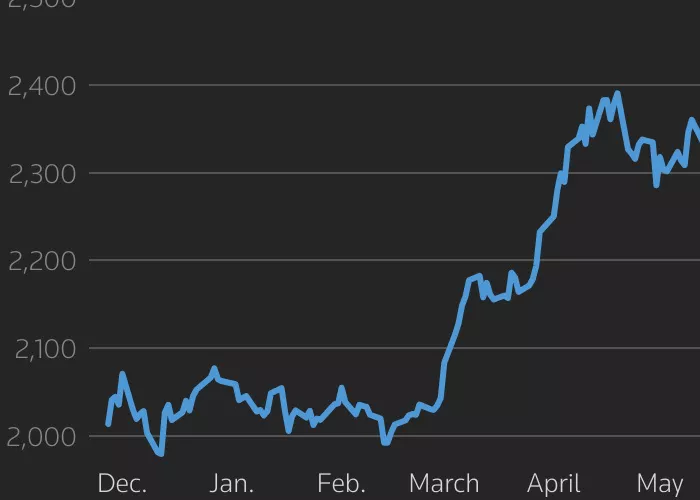Gold prices fell sharply on Monday, declining more than 1% as investors engaged in profit-taking following a five-session rally. The downward pressure was compounded by President-elect Donald Trump’s selection of fund manager Scott Bessent as the next U.S. Treasury Secretary, signaling potential shifts in trade policy that could reduce economic uncertainty.
Spot gold slipped 1.52% to $2,671.29 per ounce by 0501 GMT, while U.S. gold futures dropped 1.5% to $2,672.90. Earlier in the session, spot prices had reached their highest levels since Nov. 6, reflecting strong momentum before the pullback.
“The recent rally in gold has paused, primarily due to profit-taking, alongside market reactions to Trump’s pick of Scott Bessent for Treasury Secretary,” said Yeap Jun Rong, market strategist at IG. Bessent’s appointment is seen as a potential indicator of a more measured approach to economic policy, including a reduction in tariff dependence. Such developments could ease tensions between the U.S. and China, reducing demand for safe-haven assets like gold.
Trade policy has been a focal point of Trump’s economic agenda, with the president-elect proposing tariffs as high as 60% on Chinese imports and at least 10% on goods from other countries. These policies have raised fears of prolonged trade disputes, a factor that has historically driven investors toward gold as a hedge against economic volatility.
Investors Eye Key U.S. Economic Data
Traders are also closely monitoring upcoming economic releases, which are expected to provide further insights into the Federal Reserve’s policy direction. Key reports due this week include the minutes of the Federal Reserve’s November FOMC meeting, revised GDP data for the third quarter, and core Personal Consumption Expenditures (PCE) figures, a key inflation measure.
The CME FedWatch Tool shows that market participants now see a 56% chance of a 25-basis-point rate cut in December, down from 62% last week. “The Fed’s less dovish tone, coupled with potential inflation surprises, could lead to a pause in rate cuts this December,” Yeap explained. Such a scenario could place additional pressure on gold prices, as higher interest rates typically make non-yielding assets like gold less attractive to investors.
Federal Reserve policymakers remain divided over the future path of interest rates. While some officials have expressed concern that inflation progress may have stalled, others emphasize the need for further rate cuts to support economic growth.
Rising Geopolitical Tensions
Geopolitical concerns are also contributing to market unease. Over the weekend, Hezbollah launched heavy rocket attacks on Israel in response to an Israeli airstrike in Beirut that killed at least 29 people. The rocket strikes caused significant damage in areas near Tel Aviv, intensifying fears of escalating conflict in the region.
Gold’s role as a safe-haven asset often comes into sharper focus during periods of geopolitical instability, though Monday’s decline indicates that broader market factors, such as profit-taking and interest rate expectations, are currently dominating investor sentiment.
Pressure on Other Precious Metals
The weakness in gold prices extended to other precious metals. Spot silver dropped 1.7% to $30.77 per ounce, continuing its recent volatility. Platinum fell 0.83% to $955.25, while palladium slipped 1% to $999.15.
The ongoing uncertainty in economic data, Federal Reserve policy, and geopolitical developments will likely keep investors vigilant in the weeks ahead, with precious metals remaining a key barometer of market sentiment.
Related topics:
- Gold Prices in Chennai Remain Unchanged on November 4 for Second Consecutive Day
- UAE Gold Prices: Sharp Jump on November 4 After Recent Declines
- Gold and Silver Prices Drop Post-Diwali in Pune


